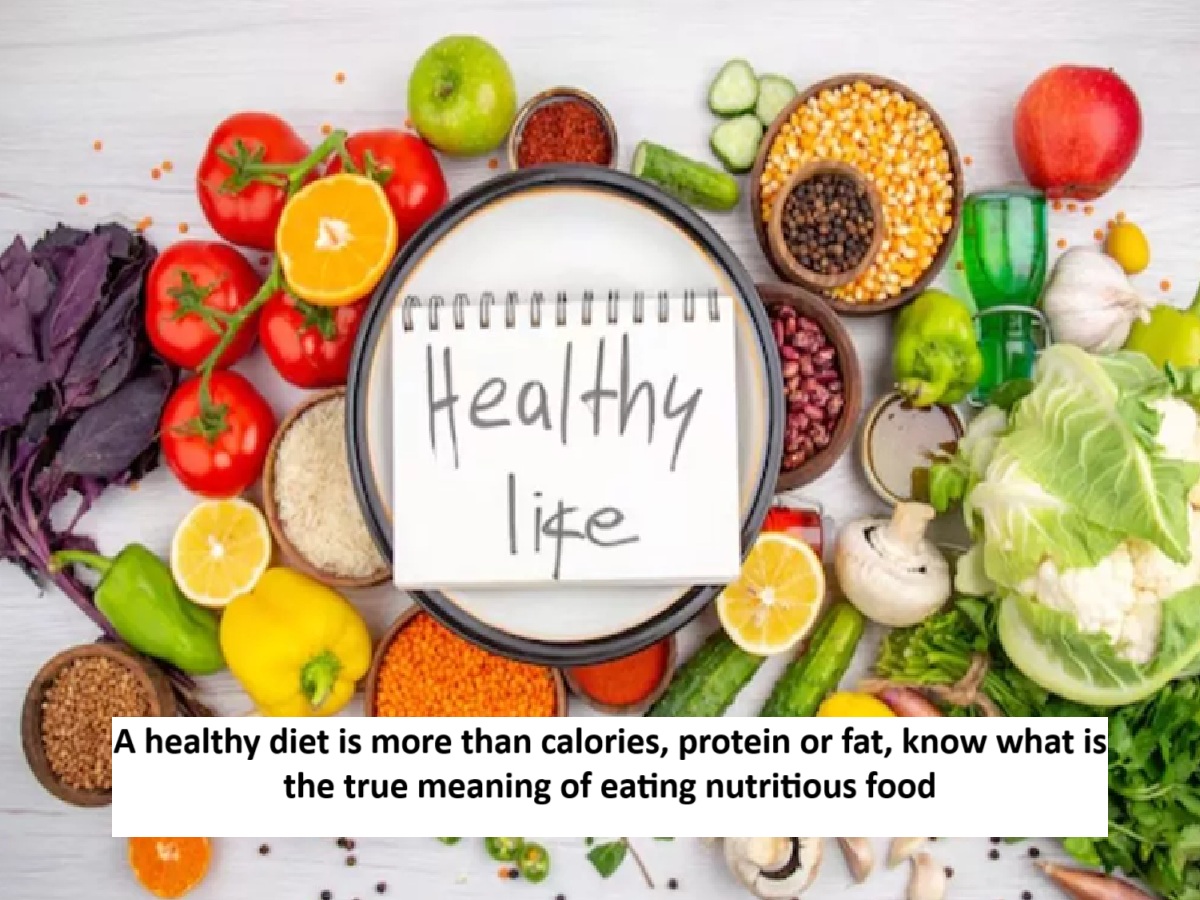
News Topical, Digital Desk : Good food is not made by claiming 'low-fat' or 'high-protein'. From Ayurveda to modern medicine, everyone agrees that it is food that is fresh, seasonal, pure, wholesome and sattvic. Imagine a rural thali with steaming dal, fresh vegetables cooked with love, rice obtained from hand-pounded paddy, barley roti and a little desi ghee.
It is the food that keeps the body healthy, gives energy and balances its rhythms. Bad food is the one that may look attractive but weakens you from within and makes your system sluggish. Highly processed snacks, sugary sweets, fried fast food or packaged/ready to eat foods are mostly devoid of vitality.
Eating them may give you happiness for a while but eventually such a diet dehydrates the body, fills it with sugar, and can also give you guilt feelings along with excess salt, oil. There is no harm in eating them occasionally, but constant dependence on them can lead to obesity, diabetes and other lifestyle diseases.
Indians are inviting obesity
Urban India has a rich food culture. Fried snacks in the evening, pizza-burgers on weekends, sweets on festivals and overeating during celebrations are common. Now add to this our modern sedentary lifestyle of not climbing stairs for long hours, screen addiction and hardly any exercise. Compared to our grandparents – who walked a lot, did manual work, lived close to nature, ate fresh food and slept on time – today's urban Indians are almost inactive.
Discipline of life has been completely forgotten. We order food from apps, sit in cars and bikes, eat packaged breakfast and binge watch and swear not to sleep before midnight. This excessive love for overeating and less activity is the perfect formula for obesity, high blood pressure and diabetes.
What is complete nutrition?
'Holistic nourishment' of the body is not just about nutrients and diet. It is achieved by connecting with physical, emotional, mental and spiritual experiences. Watching a beautiful sunrise, listening to soul-touching music, inhaling the fragrance of fresh flowers or enjoying mindful touch, all nourish you. All six senses (sight, hearing, smell, touch, taste and thought) affect our health.
Similarly, nutrition in a thali means the completeness of shad-rasa, i.e. the six tastes described in Ayurveda: sweet, sour, salty, pungent, bitter and astringent. When there is a balance of all these tastes in food, digestion, metabolism and mind are in harmony. A traditional Indian thali naturally includes all these tastes. That is why it feels complete. One more thing, if the food is not in harmony with your interpersonal mindsets like creative thoughts, behavior, faith, compassion and love, then that food is not right for you.
Make your nutrition complete with yoga
Good food, good thoughts, words, actions and good deeds combine to create holistic health. You can eat well but if you don't move, there's no question your body will be healthy. Exercise and yoga improve blood flow, increase oxygen absorption and activate metabolism. Exercise ignites the digestive fire. Yoga balances digestion, reduces stress and promotes mindfulness in eating. Yogic breathing practices cleanse and energize at the oxygen-absorbing cellular level!
How to choose nutritious food for yourself
Choosing healthy foods is not about chasing 'keto' or 'gluten-free' trends. It's about listening to your body and the laws of nature. Let's recap:
- Seasonal and local food: Mangoes in summer, amla in winter—nature gives you what you need.
- Directly from farm to table: Avoid processed and packaged food products. Choose what grows in the soil, not what has been lying on supermarket shelves for months.
- Read labels: Indians rarely check food labels. Start today. Look for hidden sugars, hydrogenated fats, preservatives and additives.
- Completeness of Shad-Rasa: Keep a balance of all the six tastes in the thali. For example, moong dal, barley roti, unpolished rice, seasonal vegetables, chutney, salad and buttermilk naturally complete all of them.
- Return to tradition: Drink jeera water or fresh coconut water instead of cold drinks. Eat roasted chickpeas or makhanas roasted in ghee instead of chips.
follow the path of ayurveda
To get complete nutrition, not only what you eat but also how and when you eat it is important. For this, Ayurveda's daily routine and seasonal routine has to be made a part of the lifestyle. The principles are very simple but the benefits are very deep:
- Eat with the sun. Have main meals during the day and light meals in the evening. Heavy meals at night hinder digestion, so it is better to avoid eating after sunset.
- Chew well, eat slowly and feel grateful for your food. Ayurveda calls this turning food into medicine. This improves digestion and absorption.
- Avoid overeating or contrasting food combinations (such as milk and citrus fruits).
- Drink warm water or herbal tea, not cold soda. Remember there is no better cold drink in the world than fresh water.
- Adapt to the weather. Eat cooling foods like watermelon, cucumber, buttermilk in summers and soups, ghee, dry fruits in winters.
--Advertisement--

 Share
Share



